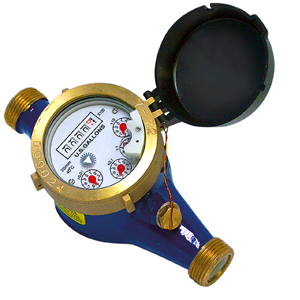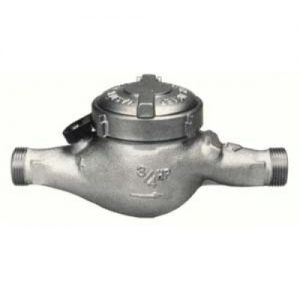Monitor your water usage with precision using our Water Meters from trusted brands like ADVANTAGE CONTROL. Essential for residential, commercial, and municipal settings, shop our collection to improve water management and conservation. Choose from various types including Positive Displacement Meters, Velocity Flow Meters, Electromagnetic Water Meters, and Ultrasonic Water Meters.
Showing all 8 results








Water meters are essential tools used to measure the volume of water consumed in residential, commercial, and industrial applications. These devices play a critical role in water management, enabling users to monitor consumption, detect leaks, and manage water usage more efficiently. Water meters help water utilities and property owners optimize resources, track costs, and ensure accurate billing.
A water meter measures the flow of water through a pipe. It records the amount of water that passes through and displays the reading in units such as gallons, cubic meters, or liters. Water meters are typically installed in a home, building, or industrial facility to track the water consumed.
Water meters provide precise readings of water consumption, ensuring accurate billing for households and businesses. This transparency allows users to better manage their water expenses and avoid overcharges.
Monitoring water usage with a meter helps detect leaks quickly, minimizing water wastage and reducing repair costs. This is especially important in large buildings, commercial properties, and industrial facilities where undetected leaks can lead to significant water loss.
By tracking consumption, water meters encourage users to conserve water and adopt sustainable practices. Smart water meters provide real-time data, allowing for quick adjustments to minimize waste.
Utilities and municipalities use water meters to monitor distribution networks and manage water flow effectively. This data helps identify areas of high consumption, plan for infrastructure upgrades, and reduce overall water loss.
In homes, water meters track individual household consumption, enabling families to monitor usage and control costs. Some meters come with digital displays for easy reading, while others can connect to apps for real-time monitoring.
Commercial water meters help businesses track and manage water usage across multiple units or departments, providing insights into operational efficiency and helping identify areas for improvement.
Water meters are used in industrial applications to measure water flow in production processes, cooling systems, or wastewater discharge. Accurate monitoring ensures compliance with regulations, optimizes resource use, and reduces costs.
Municipalities use water meters to measure the water supplied to different areas, ensuring equitable distribution and enabling precise billing for customers. Smart meters enhance efficiency by enabling remote data collection and advanced analytics.
In agricultural settings, water meters are used to monitor irrigation systems and control water use. This ensures that crops receive the right amount of water without overuse, reducing costs and supporting sustainable farming practices.
Consider the expected flow rate of the water being measured. For high flow rates, a large-capacity meter or a turbine meter may be needed, while low-flow applications can be handled with smaller mechanical meters or smart devices.
Choose a meter compatible with the type of water being measured, whether it’s clean water, wastewater, or a fluid containing particulates. Different meters are designed to handle specific conditions to ensure accuracy and durability.
Evaluate the benefits of mechanical, ultrasonic, electromagnetic, or smart meters based on your needs. Smart meters, for example, offer advanced features like remote data transmission and consumption tracking.
Consider the ease of installation, accessibility, and maintenance needs of the meter. Mechanical meters may require periodic calibration, while ultrasonic and electromagnetic meters have minimal maintenance due to the absence of moving parts.
Protect from Freezing: In cold climates, protect water meters from freezing temperatures, which can cause cracks and lead to inaccuracies or damage.